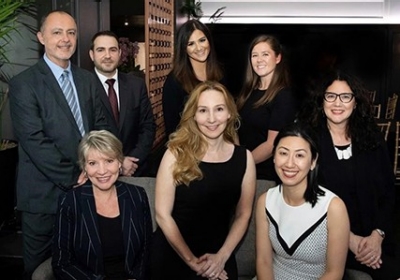Your background is in applied science and research – what made you want to pursue an MBA?
When I was doing my Bachelor’s, I saw two potential roads for myself: either being a research scientist, doing a PhD and trying to get a position in academics or the private sector; or the other was to pursue a career in business. I had done a Minor degree in business and I had found a lot of it to be interesting, so I had it in my back pocket. I didn’t know when, but I knew that I wanted to do an MBA at some point.
I was working in different labs and research settings when I finished my Master of Science in Applied Environmental Biology in 2009. This was at a time when the economy was still in a bit of a downturn, so the timing was right to apply for the MBA and John Molson seemed like the right fit for me
When did you first hear about and first get involved with Career Management Services (CMS) at John Molson?
I remember CMS being quite present at most events, including at orientation. I was seeing Mai Gee (Hum – Director) and Bob (Menard - Graduate Career Advisor) around quite a bit. One of the messages they were telling us was to get involved with CMS sooner rather than later, not to wait until your last semester to go to see them.
So early on, I was quite aware of CMS and what they offered. Mai-Gee and Bob were always very approachable and it was obvious that they were there to help. They had the best interest of students in mind. I really wasn’t sure of what I wanted to do after the MBA and they were there to talk with me about my next steps.
I went to the Career Fair [held every year in the Fall] and I believe we were the first to do the Elevator Pitch Day, which is really a cool initiative. We had 60 seconds to give a pitch about ourselves to a decent number of prospective employers and CMS had given us a lot of help beforehand to prepare.
You can tell that CMS is really trying to get top employers to these events and that they do a lot of legwork to get face time between students and employers. They took time to invest in the relationship with employers and they want us students to succeed.
How did the John Molson MBA, more generally, lay the foundations for your professional trajectory?
I took part in many case competitions, whether it was competing or coaching. We also had internal case competitions that we did on weekends between teams at John Molson; I found that was very helpful.
With the program electives, there is a lot of flexibility and you can go in many different directions. My electives were marketing and finance focused.
And there were tons of leadership opportunities, almost too many because you want to get involved in everything. When you start your MBA, it is a ‘culture of busy’; everyone wants to be doing a lot of things, all the time. Accomplishing, accomplishing, networking, learning and building up your resume.
There were so many different clubs. I was in the group that started the JMGSA [John Molson Graduate Student Association] Speaker Series. It was an idea that wasn’t commonplace at the student-run level in the business school. We thought it was a good idea so we did it! If there wasn’t already a pre-existing leadership space for you, you could create your own and make it happen.
I also did a couple of French courses at GradProSkills and that was great. They have lots of other workshops for building your resume, for LinkedIn, whatever you need.
So the program is what you make of it. John Molson gives you the latitude to do what you want, for the most part, but you can get trapped by the same token in that you can do too much and everything is superficial and you never make the time to dedicate yourself to one thing. That’s a part of the learning you have to do at some point in your life and it’s better to do it at school than to do it in a professional setting.
Do you have any words of advice for prospective and current John Molson MBA students?
Get involved in extracurricular activities. There is lots of learning in the classroom, but there’s just as much outside the classroom.
Make sure you benefit from all the resources at Concordia, not just at the business school. While the university does make many of these free services available to students, it’s up to you to go out and make the most of them.

 The John Molson Career Management Services team
The John Molson Career Management Services team